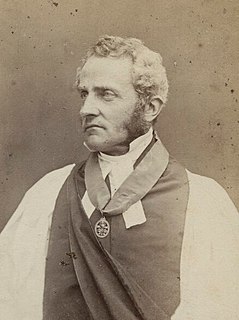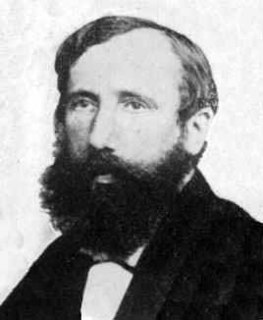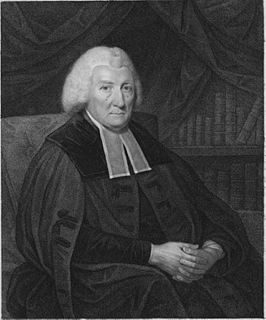Top 587 Damsel In Distress Quotes & Sayings - Page 10
Explore popular Damsel In Distress quotes.
Last updated on April 15, 2025.
It is with enormous distress that France has just learned of the monstrous attacks there is no other word for it that have just struck the United States of America. In these horrifying circumstances, the entire people of France, and I want to emphasize this, stand by the people of America. They express their friendship and solidarity in this tragedy. Naturally, I want to assure President Bush of my total support. France, as you know, has always condemned and unreservedly condemns terrorism, and considers that terrorism must be combated by all possible means.
I think if terrorists had nuclear materials and found people to put a bomb together - both of which are possible - we would already have seen a nuclear explosion. But we have literally thousands of people around the world working their tails off and making a lot of sacrifices to contain nuclear materials. I particularly would like to compliment the Russians on this. In times of great economic distress, many of them could have made an awful lot of money if they had sold their expertise.
I think the commercial culture, and also science and technology after all, which gives us greater ease but also makes it harder for us to sit with the small amounts of distress that come just by living itself. It isn't that we're chasing happiness; I think we have the wrong model of happiness. I mean, defined as eudaimonia, defined as a values-based life of integrity and fidelity to yourself and what you most deeply want to stand for, that definition of happiness - man, that's the kind of life I want to live and I think that will support people and sustain people.
There is a marvelous story of a man who once stood before God, his heart breaking from the pain and injustice in the world. "Dear God." he cried out, "look at all the suffering, the anguish and distress in your world. Why don't you send help?" God responded,"I did send help. I sent you." When we tell our children that story, we must tell them that each one of them was sent to help repair the broken world-and that it is not the task of an instant or of a year, but of a lifetime.
Every one of us knows how painful it is to be called by malicious names, to have his character undermined by false insinuations, to be overreached in a bargain, to be neglected by those who rise in life, to be thrust on one side by those who have stronger wills and stouter hearts. Every one knows, also, the pleasure of receiving a kind look, a warm greeting, a hand held out to help in distress, a difficulty solved, a higher hope revealed for this world or the next. By that pain and by that pleasure let us judge what we should do to others.
We sometimes think that being grateful is what we do after our problems are solved, but how terribly shortsighted that is. How much of life do we miss by waiting to see the rainbow before thanking God that there is rain? Being grateful in times of distress does not mean that we are pleased with our circumstances. It does mean that through the eyes of faith we look beyond our present-day challenges. This is not a gratitude of the lips but of the soul. It is a gratitude that heals the heart and expands the mind.
Unemployment in the sense of distress is widely disappearing. . . . We in America today are nearer to the final triumph over poverty than ever before in the history of any land. The poor-house is vanishing from among us. We have not yet reached the goal, but given a change to go forward with the policies of the last eight years, and we shall soon with he help of God be in sight of the day when poverty will be banished from this nation. There is no guarantee against poverty equal to a job for every man. That is the primary purpose of the economic policies we advocate
Their bodies will be raised from the dead as vessels for the soul-vessels of wrath. The soul will breathe hell-fire, and smoke and coal will seem to hang upon its burning lips, yea the face, eyes, and ears will seem to be chimneys and vents for the flame, and the smoke of the burning , which God, by His breath, hath kindled therein, and upon, them, which will be held one in another, to the great torment and distress of each other.
It can be set down as a broad, general principle that we cannot indulge in idleness and abundance during both the first and second half of our life. Study, application, industry, enthusiasm while we are young usually enable us to enjoy life when we grow older. But unless we toil and strive and earn all we can in the first half, the second half of our life is liable to bring disappointment, discomfort, distress. The time to put forth effort is when we are most able to do it, namely, in the years of our greatest strength. The law of compensation hasn't ceased to function.
It will comfort us when we must wait in distress for the Savior's promised relief that He knows, from experience, how to heal and help us. The Book of Mormon gives us the certain assurance of His power to comfort. And faith in that power will give us patience as we pray and work and wait for help. He could have known how to succor us simply by revelation, but He chose to learn by His own personal experience.
Lines I die but when the grave shall press The heart so long endeared to thee When earthy cares no more distress And earthy joys are nought to me. Weep not, but think that I have past Before thee o'er the sea of gloom. Have anchored safe and rest at last Where tears and mouring can not come. 'Tis I should weep to leave thee here On that dark ocean sailing drear With storms around and fears before And no kind light to point the shore. But long or short though life may be 'Tis nothing to eternity. We part below to meet on high Where blissful ages never die.
How we delight to build our recollections upon some basis of reality,--a place, a country, a local habitation! how the events of life, as we look back upon them, have grown into the well-remembered background of the places where they fell upon us! Here is some sunny garden or summer lane, beautified and canonized forever, with the flood of a great joy; and here are dim and silent places,--rooms always shadowed and dark to us, whatever they may be to others,--where distress or death came once, and since then dwells forevermore.
They ended every speech with the word hiro, which means: like I said. Thus each man took responsibility for intruding into the inarticulate murmur of the spheres. To hiro they added the word koue, a cry of joy or distress, according to whether it was sung or howled. Thus they essayed to piece the mysterious curtain which hangs between all talking men: at the end of every utterance a man stepped back, so to speak, and attempted to interpret his words to the listener, attempted to subvert the beguiling intellect with the noise of true emotion.
If you love the justice of Jesus Christ more than you fear human judgment then you will seek to do compassion. Compassion means that if I see my friend and my enemy in equal need, I shall help them both equally. Justice demands that we seek and find the stranger, the broken, the prisoner and comfort them and offer them our help. Here lies the holy compassion of God that causes the devils much distress.
It has been said by a distinguished philosopher that England is "usually the last to enter into the general movement of the European mind." The author of the remark probably meant to assert that a man or a system may have become famous on the continent, while we are almost ignorant of the name of the man and the claims of his system. Perhaps, however, a wider range might be given to the assertion. An exploded theory or a disadvantageous practice, like a rebel or a patriot in distress, seeks refuge on our shores to spend its last days in comfort if not in splendour.
In me there is darkness, But with You there is light; I am lonely, but You do not leave me; I am feeble in heart, but with You there is help; I am restless, but with You there is peace. In me there is bitterness, but with You there is patience; I do not understand Your ways, But You know the way for me.” “Lord Jesus Christ, You were poor And in distress, a captive and forsaken as I am. You know all man’s troubles; You abide with me When all men fail me; You remember and seek me; It is Your will that I should know You And turn to You. Lord, I hear Your call and follow; Help me.
Blackened skeleton arms of wood by the wayside pointed upward to the convent, as if the ghosts of former travellers, overwhelmed by the snow, haunted the scene of their distress. Icicle-hung caves and cellars built for refuges from sudden storms, were like so many whispers of the perils of the place; never-resting wreaths and mazes of mist wandered about, hunted by a moaning wind; and snow, the besetting danger of the mountain, against which all its defences were taken, drifted sharply down.
Your emotions are your inner guidance system. They alone will let you know whether you are living in an environment of biochemical health or in an environment of biochemical distress. Understanding how your thoughts and your emotions affect every single hormone and cell in your body, and knowing how to change them in a way that is health-enhancing, gives you access to the most powerful and empowering health-creating secret on earth.
Of the seven days God gave to us in a week, He said to take six, and use them for our business. Yet we think that we must have the seventh as well. It is like someone who, while traveling, comes upon a poor man in distress. Having but seven shillings, the generous person gives the poor man six, but when the wretch scrambles to his feet, he follows his benefactor to knock him down and steal the seventh shilling from him.
Oh, so that's why you're up here. For a pity party." "This isn't a joke. I'm serious." I could tell Lissa was getting angry. It was trumping her earlier distress. He shrugged and leaned casually against the sloping wall. "So am I. I love pity parties. I wish I'd brought the hats. What do you want to mope about first? How it's going to take you a whole day to be popular and loved again? How you'll have to wait a couple weeks before Hollister can ship out some new clothes? If you spring for rush shipping, it might not be so long.
As a newborn baby breathes and cries, so the signs of life in a newborn Christian are faith and repentance, inhaling the love of God and exhaling an initial cry of distress. And at that point what God provides, exactly as for a newborn infant, is the comfort, protection, and nurturing promise of a mother. "If God is our father, the church is our mother." The words are those of the Swiss Reformer John Calvin ... it is as impossible, unnecessary, and undesirable to be a Christian all by yourself as it is to be a newborn baby all by yourself.
When we ignore the prostituted child, we actually lend our hand to their abuse. When we ignore the widow and the orphan in their distress, we actually add to their pain. When we ignore the slave who remains captive, it's us who is entrapping them. When we forget the refugee, it's actually us who is displacing them. When we choose not to help the poor and the needy, we actually rob them. Perhaps the only fair thing to say is that when we forsake the lives of others, we actually forsake our own.
O God, I confess I am not worthy to rock that little babe or wash its diapers, or to be entrusted with the care of a child and its mother. How is it that I without any merit have come to this distinction of being certain that I am serving thy creature and thy most precious will? Oh, how gladly will I do so. Though the duty should be even more insignificant and despised, neither frost nor heat, neither drudgery nor labor will distress me for I am certain that it is thus pleasing in thy sight.
Nothing detains the reader's attention more powerfully than deep involutions of distress, or sudden vicissitudes of fortune; and these might be abundantly afforded by memoirs of the sons of literature. They are entangled by contracts which they know not how to fulfill, and obliged to write on subjects which they do not understand. Every publication is a new period of time, from which some increase or declension of fame is to be reckoned. The gradations of a hero's life are from battle to battle, and of an author's from book to book.
Perhaps the perusal of such works may, without injustice, be compared with the use of opiates, baneful, when habitually and constantly resorted to, but of most blessed power in those moments of pain and of langour, when the whole head is sore, and the whole heart sick. If those who rail indiscriminately at this species of composition, were to consider the quantity of actual pleasure it produces, and the much greater proportion of real sorrow and distress which it alleviates, their philanthropy ought to moderate their critical pride, or religious intolerance.
I had often heard Mentor say, that the voluptuous were never brave, and I now found by experience that it was true; for the Cyprians whose jollity had been so extravagant and tumultuous, now sunk under a sense of their danger and wept like women. I heard nothing but the screams of terror and the wailings of hopeless distress. Some lamented the loss of pleasures that were never to return; but none had presence of mind either to undertake or direct the navigation of the menaced vessel.
The economic distress of America's inner cities may be the most pressing issue facing the nation. The lack of businesses and jobs in disadvantaged urban areas fuels not only a crushing cycle of poverty but also crippling social problems such as drug abuse and crime… A sustainable economic base can be created in the inner city, but only as it has been created elsewhere: through private, for-profit initiatives and investment based on economic self-interest and genuine competitive advantage.
What is natural in me, is natural in many other men, I infer, and so I am not afraid to write that I never had loved Steerforth better than when the ties that bound me to him were broken. In the keen distress of the discovery of his unworthiness, I thought more of all that was brilliant in him, I softened more towards all that was good in him, I did more justice to the qualities that might have made him a man of a noble nature and a great name, than ever I had done in the height of my devotion to him.
That's unfortunately common - to blame immigrants, to blame the African-Americans who are being helped by federal programs, to blame anyone available, to direct attention away from the roots of the distress which you're suffering. This combines with xenophobia, white supremacy, racism, misogyny, and other quite unpleasant phenomena which are far from being eradicated. All of this makes for a pretty dangerous brew. But economic issues are right in the center of it. And you can see this in the fact that so many former Obama voters now voted for Trump, or just didn't bother voting.
Princess Diana talking to Prince William about the loss of her title Her Royal Highness: She turned to William in her distress. She (Princess Diana) told me how he had sat with her one night when she was upset over the loss of HRH, put his arms around her and said: Don't worry, Mummy. I will give it back to you one day when I am king.
Compassion is an emotion of which we ought never to be ashamed. Graceful, particularly in youth, is the tear of sympathy, and the heart that melts at the tale of woe. We should not permit ease and indulgence to contract our affections, and wrap us up in a selfish enjoyment; but we should accustom ourselves to think of the distresses of human, life, of the solitary cottage; the dying parent, and the weeping orphan. Nor ought we ever to sport with pain and distress in any of our amusements, or treat even the meanest insect with wanton cruelty.
Reckon then that to acquire soul-winning power, you will have to go through mental torment and soul distress. You must go into the fire if you are going to pull others out of it, and you will have to dive into the floods if you are going to draw others out of the water. You cannot work a fire escape without feeling the scorch of the conflagration, nor man a lifeboat without being covered with the waves.
When we hit a nail with a hammer, the whole of the shock received by the large head of the nail passes into the point without any of it being lost, although it is only a point. If the hammer and the head of the nail were infinitely big it would be just the same. The point of the nail would transmit this infinite shock at the point to which it was applied. Extreme affliction, which means physical pain, distress of soul and social degradation, all at the same time, constitutes the nail. The point is applied at the very center of the soul, whose head is all necessity, spreading throughout space and time.
The effect of speech upon the condition of the soul is comparable to the power of drugs over the nature of bodies. For just as different drugs dispel different secretions from the body, and some bring an end to disease and others to life, so also in the case of speeches, some distress, others delight, some cause fear, others make the hearers bold, and some drug and bewitch the soul with a kind of evil persuasion.
Do not interrupt the flight of your soul; do not distress what is best in you; do not enfeeble your spirit with half wishes and half thoughts. Ask yourself and keep on asking until you find the answer, for one may have known something many times, acknowledged it; one may have willed something many times, attempted it - and yet, only the deep inner motion, only the heart's indescribable emotion, only that will convince you that what you have acknowledged belongs to you, that no power can take it from you - for only the truth that builds up is truth for you.
Christ is already in that place of peace, which is all in all. He is on the right hand of God. He is hidden in the brightness of the radiance which issues from the everlasting throne. He is in the very abyss of peace, where there is no voice of tumult or distress, but a deep stillness--stillness, that greatest and most awful of all goods which we can fancy; that most perfect of joys, the utter profound, ineffable tranquillity of the Divine Essence. He has entered into His rest. That is our home; here we are on a pilgrimage, and Christ calls us to His many mansions which He has prepared.
I almost feel like there's some kind of connection that I'm having trouble putting in to words, in the same sense that I'm learning things from my children still. I think, just like any relationship, if I choose to become twisted and bitter it can be a source of distress or discomfort. But I think I've come to terms with the fact that I would prefer to see it as a gift. And I would prefer to see it as something that empowers me rather than something that diminishes me in some way.
If the book we are reading does not wake us, as with a fist hammering on our skull, why then do we read? So that it shall make us happy? Good God, we should also be happy if we had no books, and such books as make us happy we could, if need be, write ourselves. But what we must have are those books which come upon us like ill fortune, and distress us deeply, like the death of one we love better than ourselves; like suicide. A book must be an ice-axe to break the sea frozen inside us.
Were a stranger to drop on a sudden into this world, I would show him, as a specimen of its ills, a hospital full of diseases, a prison crowded with malefactors and debtors, a field of battle strewed with carcasses, a fleet foundering in the ocean, a nation languishing under tyranny, famine, or pestilence. To turn the gay side of life to him, and give him a notion of its pleasures; whither should I conduct him? to a ball, to an opera, to court? He might justly think, that I was only showing him a diversity of distress and sorrow.
The man who boldly transgresses, amassing a great heap unjustly--by force, in time, he will strike his sail, when trouble seizes him as the yardarm is splintered. He calls on those who hear nothing and he struggles in the midst of the whirling waters. The god laughs at the hot-headed man, seeing him, who boasted that this would never happen, exhausted by distress without remedy and unable to surmount the cresting wave. He wrecks the happiness of his earlier life on the reef of Justice, and he perishes unwept, unseen.
Pain - physical, emotional and spiritual pain - is more than just a condition that needs to be silenced, numbed or "fixed." Pain in all its forms is also a message, a kind of distress signal to our hearts and minds. There are times when it's really important to tune into that message and just listen to it. When we don't listen, our understanding of the world gets more and more distorted, and we become capable of doing things we very often regret.
prepare a little hot tea or broth and it should be brought to them . . . without their being asked if they would care for it. Those who are in great distress want no food, but if it is handed to them, they will mechanically take it ' ... There was something arresting about the matter-of-fact wisdom here, the instinctive understanding of the physiological disruptions... I will not forget the instinctive wisdom of the friend who, every day for those first few weeks, brought me a quart container of scallion-and-ginger congee from Chinatown. Congee I could eat. Congee was all I could eat.
When I say that all men have the mind which cannot bear to see the suffering of others, my meaning is illustrated this way: when two men suddenly see a child about to fall into a well, they all have a feeling of alarm and distress, not to gain friendship with the child's parents, nor to seek the praise of their neighbors and friends. From such a case, we see that a man without the feeling of commiseration is not a man. The feeling of commiseration is the beginning of humanity.
The Master said, "Wealth and honor are things that all people desire, and yet unless they are acquired in the proper way I will not abide them. Poverty and disgrace are things that all people hate, and yet unless they are avoided in the proper way I will not despise them. If the gentleman abandons ren, how can he be worthy of that name? The gentleman does not violate ren even for the amount of time required to eat a meal. Even in times of urgency or distress, he does not depart from it."
Married women are far more depressed than married men - in unhappy marriages, three times more; and - interestingly - in happy marriages, five times more. In truth, it is men who are thriving in marriage, now as always, and who show symptoms of psychological and physical distress outside it. Not only their emotional well-being but their very lives, some studies say, depend on being married!
Said one oyster to a neighboring oyster, "I have a very great pain within me. It is heavy and round and I am in distress." And the other oyster replied with haughty complacence, "Praise be to the heavens and to the sea, I have no pain within me. I am well and whole both within and without." At that moment a crab was passing by and heard the two oysters, and he said to the one who was well and whole both within and without, "Yes, you are well and whole; but the pain that your neighbor bears is a pearl of exceeding beauty."












































